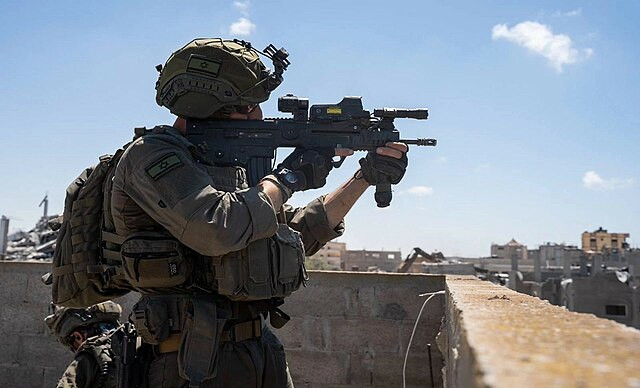Israel's security cabinet has unanimously approved an expanded military operation in Gaza that officials described as a plan for "the conquest of Gaza and the holding of the territories," signaling a significant escalation in both combat operations and long-term intentions for the Palestinian enclave.
The decision, made late Sunday, authorizes the Israel Defense Forces to intensify operations across Gaza, displace civilians to the south, and deliver what one official called "powerful strikes against Hamas." The move coincides with a mass mobilization of "tens of thousands" of reservists, according to IDF Chief of Staff Lt. Gen. Eyal Zamir, in preparation for a broad redeployment of regular troops to Gaza.
Lt. Gen. Zamir reportedly clashed with cabinet hardliners, including National Security Minister Itamar Ben Gvir and Settlements Minister Orit Strook, during the meeting. Israel's public broadcaster Kan 11 confirmed the argument focused on the resumption of humanitarian aid, which the military insists must proceed under international law.
The plan, which Israeli media say was backed by Prime Minister Benjamin Netanyahu, goes beyond prior war aims and is seen as a turning point in Israel's seven-month campaign in Gaza. More than 52,535 Palestinians have been killed since the war began, including over 2,400 since mid-March, according to the Gaza Health Ministry. Israel's offensive resumed with greater intensity following the collapse of a temporary ceasefire in March.
The new military framework includes a controversial overhaul of Gaza's humanitarian aid system. Instead of relying on UN-run channels, Israel proposes limited distribution hubs guarded by the IDF and operated by private contractors. The United Nations and humanitarian agencies have condemned the plan.
"Israeli officials have sought to shut down the existing aid distribution system... and have us agree to deliver supplies through Israeli hubs under conditions set by the Israeli military," said the UN Office for the Coordination of Humanitarian Affairs on Sunday. "It is dangerous, driving civilians into militarised zones... while further entrenching forced displacement."
The UN and aid groups warned that the proposed mechanism violates core humanitarian principles. "We will not participate in any scheme that does not adhere to the global humanitarian principles of humanity, impartiality, independence and neutrality," they stated.
Hamas also rejected the aid framework, describing it on Monday as "political blackmail." A coalition of hostage families said the plan endangered both hostages and IDF soldiers. "The expansion of military operations puts every hostage at grave risk," the group said. "It also threatens the lives of our soldiers and deepens the toll on countless Israeli families already carrying the burden of this war."
Israel maintains that the blockade and military pressure are aimed at forcing Hamas to release the 58 hostages still held in Gaza since the October 2023 attack, which left around 1,200 Israelis dead, most of them civilians.
Amid the intensifying campaign, Israel's efforts may be influenced by geopolitical timing. President Donald Trump is expected to visit Saudi Arabia, Qatar, and the UAE in mid-May. While Israel is not on the itinerary, Trump's hosts are likely to press him for a new ceasefire and expanded humanitarian access. One Israeli official said the announcement of the new offensive "provides leverage" ahead of negotiations over a potential ceasefire deal.
Netanyahu, whose political future is closely tied to the backing of far-right coalition partners calling for the reoccupation and resettlement of Gaza, has also continued to advocate a U.S.-proposed population displacement plan. The proposal, first floated by Trump in January, suggests relocating Palestinians from Gaza to neighboring countries such as Egypt or Jordan.
Overnight Israeli airstrikes killed at least 17 people in Gaza's north, according to al-Shifa Hospital staff. Strikes hit Gaza City, Beit Hanoun, and Beit Lahiya, with at least eight women and children among the dead.






